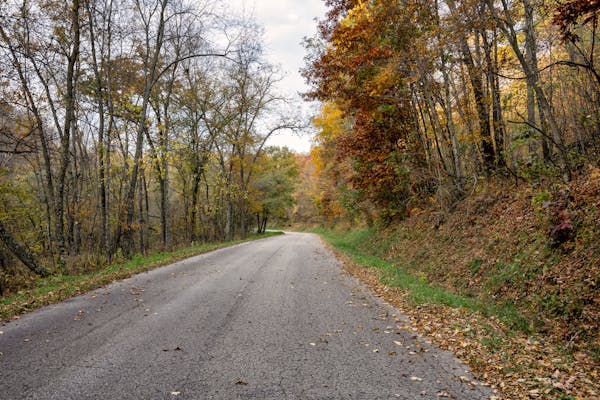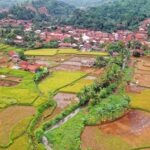
Innovative Rural Business Ideas to Explore

Rural business ideas are essential for development so are you tired of the limited business opportunities in rural areas? While urban centers seem to buzz with endless possibilities, rural entrepreneurs are discovering innovative ways to turn their location into a competitive advantage.
The key lies in identifying the right rural opportunities that align with rural resources and market demands. Whether it’s leveraging agricultural assets, tapping into the growing demand for authentic experiences, or utilizing digital platforms to reach broader markets, rural entrepreneurship is evolving rapidly. Through this guide, we’ll explore how theories of opportunity, identification methods, and key drivers can help you uncover profitable business ventures in rural settings.
Let’s dive into 10 groundbreaking rural business ideas and examine how understanding market opportunities, theoretical frameworks, and practical identification strategies can set you on the path to rural business success.
Learning Objectives
Core Competencies
-
Understand fundamental concepts of rural entrepreneurship
-
Identify viable business opportunities in rural settings
-
Evaluate market potential and resource requirements
Key Knowledge Areas
-
Market Analysis
-
Resource Management
-
Business Model Development
-
Risk Assessment
Skill Development Matrix
| Skill Category | Basic Level | Advanced Level |
|---|---|---|
| Business Planning | Identify local needs | Create comprehensive strategy |
| Market Research | Conduct surveys | Analyze market trends |
| Resource Management | List available resources | Optimize resource allocation |
| Financial Planning | Basic budgeting | Advanced financial modeling |
Practical Applications
The primary focus is on developing the ability to spot and evaluate business opportunities in rural settings. Participants will learn to:
-
Conduct community needs assessments
-
Analyze local resource availability
-
Identify market gaps and opportunities
-
Develop sustainable business models
-
Create practical implementation plans
Understanding these foundational elements is crucial for success in rural entrepreneurship. By mastering these objectives, aspiring entrepreneurs will be better equipped to navigate the unique challenges and opportunities present in rural markets. Now, let’s explore various theories of opportunity that will help structure your approach to rural business development.

![]() Theories of Opportunity
Theories of Opportunity
Chester Carlson’s Path to Innovation
Chester Carlson’s journey exemplifies how rural entrepreneurs can transform limitations into groundbreaking opportunities. In rural areas the competition is not as high as in the urban areas. His development of xerography offers valuable lessons for identifying business opportunities:
Key Elements of Carlson’s Theory
-
Problem-First Approach: Identify real pain points in your community
-
Resource Utilization: Use available materials creatively
-
Persistence: Continue despite initial setbacks
-
Market Validation: Test solutions with potential customers
| Principle | Application in Rural Business |
|---|---|
| Innovation | Transform existing resources |
| Timing | Match solutions to current needs |
| Scalability | Start small, expand gradually |
| Adaptability | Modify based on feedback |
Carlson’s theory emphasizes that successful rural businesses often emerge from solving local problems rather than copying urban models. His approach demonstrates that innovation doesn’t require extensive resources but rather creative problem-solving and determination. He proved that breakthrough ideas can emerge from modest beginnings, particularly when entrepreneurs focus on addressing specific community needs.
Beyond the practical aspects, Carlson’s work shows how rural entrepreneurs can leverage their unique understanding of local challenges. His methodology suggests starting with thorough problem analysis before moving to solution development, ensuring that business ideas are grounded in real market needs. Now that we understand the theoretical foundation of opportunity recognition through Carlson’s lens, let’s explore how to identify specific opportunities in rural market

How Spanx Founder Developed Resilience and Persistence
Sara Blakely’s journey to creating Spanx exemplifies the perfect blend of opportunity recognition and entrepreneurial perseverance. Her story demonstrates key elements that define successful opportunity identification:
Key Success Factors
-
Identified a clear market gap in women’s undergarments
-
Developed prototype solutions through trial and error
-
Maintained unwavering belief despite multiple rejections
-
Leveraged personal savings of $5,000 for initial development
Development Timeline
| Phase | Action | Outcome |
|---|---|---|
| Discovery | Cut feet off pantyhose | Initial prototype |
| Development | Self-tested products | Product refinement |
| Pitching | Approached manufacturers | Multiple rejections |
| Breakthrough | Secured first manufacturer | Production began |
Sara’s resilience manifested through her commitment to cold-calling manufacturers daily, even after facing consistent rejection. She personally visited fabric mills, studied patent law at nights, and wrote her own patent to save money. This determination eventually led to Spanx becoming a billion-dollar company. Her experience highlights three crucial aspects of opportunity identification:
-
Problem recognition in everyday situations
-
Commitment to solution development
-
Persistence through challenges
With this understanding of how real entrepreneurs identify and pursue opportunities, let’s examine the key drivers that create these opportunities in the market. With the knowledge of this kind issues then we can be able to share the knowledge with other people in other developing countries so that they too can be able to progress in life.
Understanding Market Forces
Several key drivers shape rural business opportunities, creating a dynamic landscape for entrepreneurs to explore:
-
Demographic Changes
-
Aging population in rural areas
-
Migration patterns
-
Changing family structures
-
-
Technological Advancement
-
Digital connectivity
-
E-commerce platforms
-
Mobile solutions
-
-
Economic Shifts
-
Local resource utilization
-
Supply chain disruptions
-
Market gaps
-
| Driver Category | Impact on Rural Business | Opportunity Areas |
|---|---|---|
| Social | Community needs and preferences | Healthcare, education, social services |
| Environmental | Sustainability demands | Renewable energy, eco-tourism, organic farming |
| Economic | Market gaps and resource availability | Value-added agriculture, craft industries |
| Technical | Digital transformation | E-commerce, remote services, digital solutions |
Key Success Factors
The success of rural business ventures often depends on:
-
Resource Accessibility
-
Natural resources
-
Human capital
-
Infrastructure
-
-
Market Understanding
-
Local needs assessment
-
Competition analysis
-
Distribution channels
-
-
Innovation Capacity
-
Adaptability to change
-
Problem-solving ability
-
Creative solutions
-
Now that we understand the driving forces behind rural business opportunities, let’s explore specific business ideas that leverage these factors effectively. Identifying and seizing opportunities in rural areas requires a deep understanding of local needs, market dynamics, and emerging trends. By examining various theories of opportunity and their practical applications, entrepreneurs can better position themselves to create sustainable ventures that serve their communities while generating profitable returns.
The key to rural business success lies in recognizing the unique drivers that shape opportunity in these areas. Armed with this knowledge and a strategic approach to opportunity identification, aspiring entrepreneurs can transform challenges into viable business solutions. Take action today by evaluating your local market, identifying unmet needs, and developing innovative solutions that contribute to rural economic growth.

Frequently asked questions on rural business ideas
The question of rural business ideas is very much useful for development of the people in rural areas and in the country’s economy. For most development countries, there are more people in the rural areas than there are in the urban areas. The subject attracts a number of interesting questions and here are some of those ones:
- What best small rural business ideas are there in the country?
- What unique business ideas in rural areas can lead to development?
- Who posses the best businesses in rural areas?
- Which group of people possess most profitable business in rural areas in India?









Leave a Reply